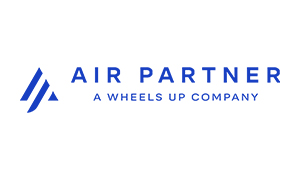Why Aiming For #1 On Google Doesn't Work
 "Get to the top on Google" has got to be one of the most common promises made by dodgy SEO agencies today, but even though modern search engine algorithms make aiming for "number one on Google" (or indeed anywhere else) a completely redundant aim this doesn't seem to stop people from demanding it - or, in the case of those devoid of ethics and/or understanding, from promising it.
"Get to the top on Google" has got to be one of the most common promises made by dodgy SEO agencies today, but even though modern search engine algorithms make aiming for "number one on Google" (or indeed anywhere else) a completely redundant aim this doesn't seem to stop people from demanding it - or, in the case of those devoid of ethics and/or understanding, from promising it.
The first thing to understand is that there is no such thing as "top" in natural search any more. What I see at number 1 won’t be the same as you, your dad, your aunt Hilda or her gardener Bob. Modern search engines (and yes, Google was the pioneer here in 2009) use a technique called personalised search.
This means that every time you visit a website, cookies (small text files) are placed on your computer to track your usage, effectively leaving a little breadcrumb trail of your interests and preferences behind. Then, the next time you go and search, whether for something related or something entirely different, all that data and history is taken into account to give you a personalised version of search results. Amazingly, although personalised search is now approaching its fourth birthday most people still don't deign to realise that it exists.
The idea is that instead of showing websites in an order based solely on their optimisation, the search engine shows you things which are both related to the term you searched for and relevant to your interests. So if you regularly visit Thorntons for your sugar hit and then happen to search for chocolate eggs, Thorntons will appear higher on your search results than it would on someone who had never (or more rarely) visited that particular website.
Google even takes things a step further with some exceptionally clever stuff, like if you clicked onto a website but then bounced straight back off and went elsewhere, that website will be ranked lower for you because you didn’t seem to like it. This applies to paid ads too – different people will see different results on Adwords depending on individual search and browsing history. It's all designed to make search more personally relevant - and therefore more useful - to you as an individual.
So why are there still tools like Rank Checker out there and why are so many people still talking about your search engine “rank” in terms of an absolute figure or number? Well, the simple answer is that a lot of search marketers – or at least people masquerading as search marketers – don’t properly understand personalised search, or are just taking advantage of the many businesses and consumers who need their services and don’t understand it at all. Neither of these options is a particularly happy one if you're looking for a legitimate marketer to help with your SEO.
In more depth, search engine ranks do show a sort of progress. While they aren’t an absolute measure by any means, they can show whether you’re heading in the right direction or not - provided you exclude personalised search effects. If the numbers head towards low, single digit figures then things are good, whereas if they start to look bigger then something’s gone wrong.
Use incognito mode, clear your history and cookies regularly, or just tick on the “don’t use personalised search” option which most rank checking tools offer in order to minimise the impact of personalised searching on your marketing work. In fact various incarnations of Webmaster Tools also helpfully offer a more meaningful metric, the “average position” of keywords in search results taken over all impressions for a given period of time. Now that’s a good metric to start talking about and reporting on – if only people would make an effort to understand why.
If you’re baffled by blogs and lost in links, pick up the phone and call +44 (0) 1227 68 68 98 today to find out how ExtraDigital can help you build a sensible and sustainable set of online marketing to include SEO, PPC, social media and more.
PS we build beautiful websites too!














